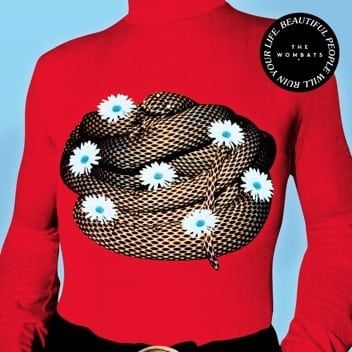Interview: Tom Grennan
Getting its first play as Annie Mac’s Hottest Record in the World on Radio 1, ‘Sober’ is the new single from Tom Grennan. It’s the follow-up to the huge single ‘Royal Highness’ which featured on the Radio 1 B List and Virgin playlists and saw him record a Maida Vale Session for Annie Mac.
‘Sober’ is another taste of Tom’s forthcoming debut album Lighting Matches, set to be released on Insanity Records in May. The album sees Tom working with Grammy award-winning producers Fraser T Smith (Stormzy/Adele/Kano/Plan B) and Dan Grech (Liam Gallagher/Killers/Radiohead) and is set to be one of the most important albums of 2018.
We caught up with Tom after a crazy night at the 2018 NME Awards…
Hi Tom, I actually saw you at the NME Awards last night — did you have fun?
Did you?! You should have come and said ‘Hi’. Yeah, it was wicked, though I’ve got a bit of a sore head now. Liam Gallagher was amazing. Are you back in Manchester now then?
Yeah, I’ve literally just got back! What was your favourite bit last night?
Yeah, I reckon it was Liam. I love his album from last year, and he did some Oasis stuff and it just got everyone up and lively. Also, BBK winning the Innovation Award was amazing. I’ve been a massive fan of them since I was about 12 so to see them win that award… that woman as well — Shirley Manson — who did that speech. That was inspirational too.
How has the last year been for you? Pretty crazy I guess? Any particular highlights?
Yeah, the last year has been crazy. Exciting though. Oh… they’re all highlights. This world is just crazy. Selling out my tour last year, touring Europe, doing festivals, writing my album… it’s all been one big highlight.
Are you excited for the tour to begin in March?
So excited. My home is on the road. At heart, I’m a performer, and I just love the energy you get from performing live. 100 per cent my favourite thing to be doing is performing on stage. I love the excitement of the whole thing. I’m buzzing, my band are buzzing, then you head to venues and the crowd are buzzing.
Are you looking forward to getting out to some festivals this summer?
Yeah I’m doing loads. Last year was my first year doing festivals, and now I think I’m headlining the Republic Stage at Reading and Leeds!
Your debut album Lighting Matches is out 18th May. It feels well overdue!
Does it? Well originally it was supposed to come out in March, but I pushed it back to May. But yeah, it definitely feels like the right time for the album and I’m so ready for people to hear it.
Will your album feature more of the same?
There’s some surprises. There’s a lot of orchestra and brass. I’d say it goes from the more upbeat stuff like ‘Found What I’m Looking For’ on a journey to more mature stuff…yeah, it feels like growing up.
We love the new track ‘Sober’ – was it an easy one to write?
Erm… no. Well, I’ll tell you why I wrote it. You know those hungover mornings when you just wake up and you think you never want to drink again? Like you don’t want to smell it, see it, taste it? I thought I’d write a song about it. I wrote Sober when I was hungover, which I think makes it better. More real.
Who would you say is the biggest influence on your music?
Biggest influence on my music would have to be… anyone like Adele, Robert Johnson, Ray Charles. But I’m also a massive grime and hip-hop fan, so I guess I’m taking elements from everywhere.
If you could recommend one artist/album/song to our readers right now, what would it be?
Can it be a known artist? I would have to say J Hus’ album [Common Sense] from last year.
Brilliant! Thanks for the chat Tom, and we hope that hangover clears up…




























